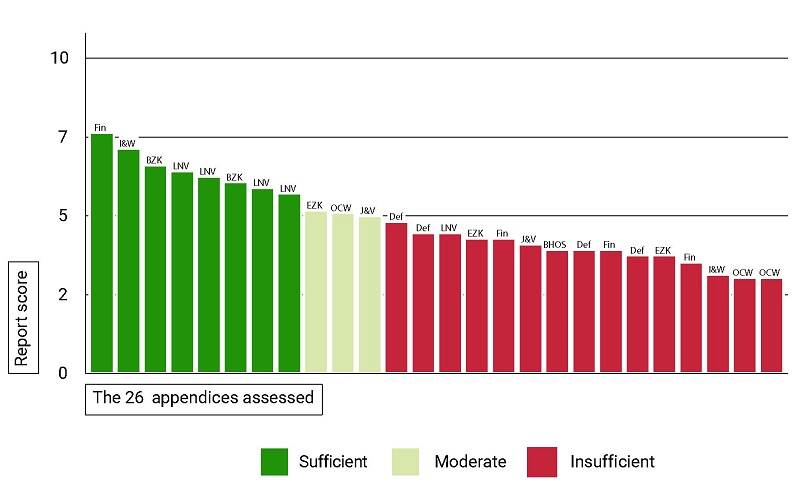Insight into quality
Successful operation?
Ministries invest a lot of energy in initiatives to increase insight into the goals of government policy. This is one outcome of Operation Insight into Quality, carried out by the third Rutte government in accordance with the coalition agreement, but the information justifying policy and policy proposals is often insufficient. Furthermore, ministries virtually never ask whether existing government policy is appropriate or whether it would be better to terminate a policy.
These findings are presented in the audit report, Insight into Quality – successful operation? The objective of the government’s Operation Insight into Quality was to strengthen the social impact of policy. We audited more than half of all ministerial initiatives to increase insight into policy results and to learn from them.
The Netherlands Court of Audit published its audit report on 21 April 2021. One of its conclusions is that learning from evaluations is more deeply embedded at the Ministry of Economic Affairs and Climate Policy than at many other ministries. But virtually none of the ministries questioned the desirability of policy or consistently addressed the lessons learned from evaluations.
The quality of information justifying policy is often insufficient

More than a third of bills contain sufficient information
Of all the 26 bills ministers sent to the House of Representatives between June and November 2020, nearly two-thirds contained insufficient information to justify the policy, according to the Court of Audit. A third of the bills did include sufficient information.
Policy information is a stubborn problem
In 2019 the Minister of Finance in his role as policy coordinator found that new policy initiatives rarely estimated what effect a policy would have, and that the situation had to improve because the Government Accounts Act as amended in 2018 requires such estimates to be made in advance. The need for insight into policy efficiency and effectiveness should be self-evident, according to the Court of Audit. It reduces the risk of public money being wasted and of socially undesirable outcomes and enables public accountability. It must therefore be asked whether it might be better to terminate certain policies.
Our report concludes that the new government should pay more time and attention to the information provided to justify government policy.
What methods did we use in our audit?
The audit consisted of two parts: a sub-audit of 9 ministerial initiatives (out of a total of 19), and a sub-audit of the information provided to justify policy in accordance with section 3.1 of the Government Accounts Act 2016. We audited all the 26 available appendices to policy amendments proposed between 12 June and 18 November 2020. The first sub-audit focused on the extent to which ministries learned from policy and policy evaluations and the extent to which they asked questions of themselves (through policy evaluations) and responded appropriately (for instance by amending policy), and what was needed to equip them to respond appropriately (by strengthening the evaluation function). This is an organisational learning approach, or learning from learning.
Why did we audit the information provided to justify policy?
Under Operation Insight into Quality, the government has taken several initiatives since mid-2018 to improve ex-ante policy information, monitoring, management, mid-term evaluation and effective ex-post evaluation. The operation’s ultimate goal is to increase the social added value of public money by increasing insight into the impact of policy and responding appropriately. We wanted the audit to determine what the operation had led to.
Current status
In his written response to the audit, the Minister of Finance considered our findings and conclusions. He did not explicitly refer to our recommendations.
The report was submitted to the House of Representatives and published on 21 April 2021.